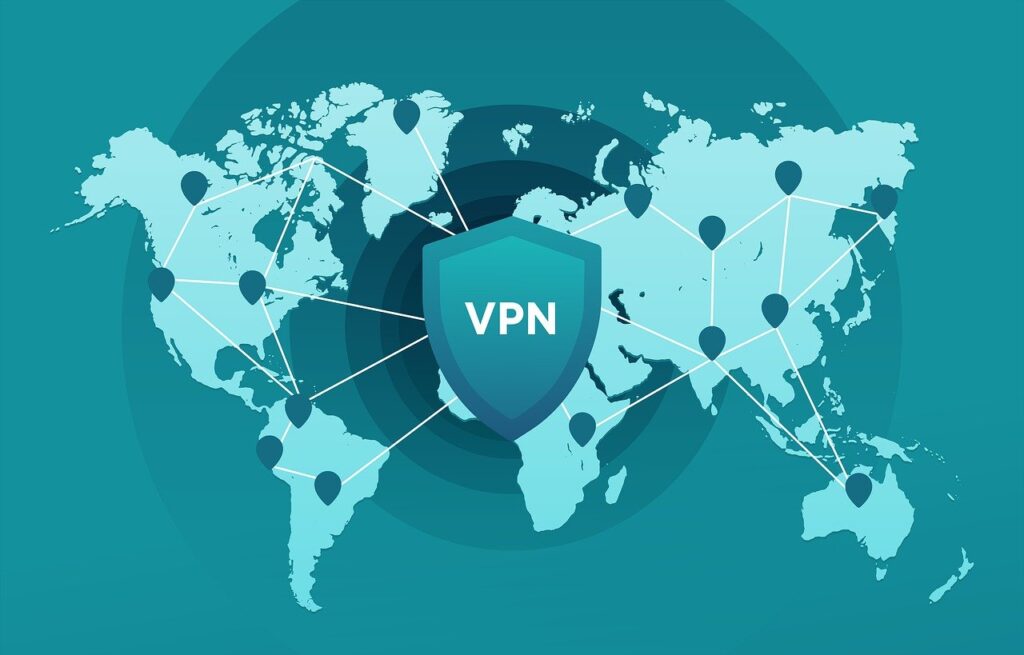With the growing popularity of cryptocurrencies, more and more VPN providers are opening up to accepting crypto like Bitcoin as a payment method. This opens up new possibilities for privacy-focused internet users looking to go the extra mile to cover their tracks online. In this blog, we’ll break down some of the top-rated VPN services that let you pay with crypto, so you can pick out the best one to suit your needs and budget.

Best VPN Providers Accepting Crypto Payments
NordVPN
NordVPN first sprang up in 2012, the brainchild of a group of childhood buddies, including Tomas Okmanas. This band of friends banded together to break into the cybersecurity space by hatching Nord Security (Nordsec Ltd), the company that would go on to roll out NordVPN. Early on, Nord Security linked up with the Lithuania-based startup accelerator and business incubator Tesonet, which provided crucial support and resources to get NordVPN off the ground in its formative years.
Pros of NordVPN
- Supports Bitcoin, Ethereum, and XRP for anonymous payments.
- Accepts credit cards, PayPal, AmazonPay, Sofort, prepaid cards, Google Pay, and iTunes.
- Price ranges from $12.99 to $14.99 per month.
- Over 5,500 servers in 60 countries for global coverage.
- Provides speeds of up to 55 Mbps for smooth browsing and streaming.
- Compatible with Windows, macOS, Android, iOS, Android TV, Linux, Chrome, and Firefox.
- Connect up to six devices simultaneously.
- Guards against malware, web trackers, ads, and common online threats.
- Utilizes next-generation encryption to keep online traffic secure.
- Automatically disconnects the internet if the VPN connection drops.
- Allows selective routing of apps through the VPN for personalized protection.
- Offers an extra layer of encryption with double VPN servers.
- Enables safe streaming and enhances online privacy.
- Provides access to IP-restricted networks while maintaining an online reputation.
- 65% off and 3 extra months with a 30-day money-back guarantee.
Cons of NordVPN
- While NordVPN offers decent speeds, actual speed may vary depending on server load and location.
- Supports only Bitcoin, Ethereum, and XRP for cryptocurrency payments.
ExpressVPN
ExpressVPN first emerged on the scene in 2009, dreamed up by close friends and serial entrepreneurs Peter Burchhardt and Dan Pomerantz, who had teamed up after crossing paths as Wharton School alumni. Their company Express VPN International Ltd, based in the British Virgin Islands, brought ExpressVPN to life as a privacy and security tool to encrypt web traffic and mask IP addresses for users worldwide.
Over the years since its launch, ExpressVPN has taken off to amass millions of active subscribers across more than 180 countries. The company has continued to expand its global server network, which now spans 94 countries while beefing up its apps for all major platforms. ExpressVPN’s team members are scattered across more than 20 cities globally, working together to roll out the service in 17 languages and counting.
Pros of ExpressVPN
- Supports Bitcoin, Ethereum, and XRP for anonymous payments.
- Plans start from $12.95 per month.
- Offers speeds of up to 57.27 Mbps.
- Servers in 94 countries for worldwide coverage.
- Try ExpressVPN risk-free; get a full refund within 30 days if you are not satisfied.
- Utilizes AES-256 encryption, a standard trusted by security experts.
- Support team available around the clock for setup and troubleshooting assistance.
- Innovative server technology ensures no data is written to hard drives.
- Apps available for iOS, Android, Mac, Windows, Linux, routers, and more.
- Use on up to 8 devices simultaneously.
Cons of ExpressVPN
- Supports only Bitcoin, Ethereum, and XRP for cryptocurrency payments.
- Offers only one payment gateway option for cryptocurrencies.
Surfshark
Surfshark sprang onto the virtual private network scene in 2018, the brainchild of founder Vytautas Kaziukonis. The company moved to an entirely RAM-based server network, brought the WireGuard protocol on board, and signed on as a founding member of the VPN Trust Initiative. Surfshark also broke new ground in 2018 by hatching Nexus, a cutting-edge technology that revolutionized the VPN industry.
Surfshark continued to pick up momentum by kicking off its own research lab to drive innovation. The company’s growth trajectory attracted interest from Nord Security, the force behind NordVPN. In 2022, the two brands merged under one holding company in a deal valued at $1.6 billion, combining their strengths to create a cybersecurity powerhouse.
Pros of Surfshark
- Supports Bitcoin, Litecoin, XRP, and Ethereum for payments.
- Maintains a policy of not requiring user registration.
- Offers speeds of up to 62.49 Mbps.
- Over 3,200+ servers in more than 100 countries for wide coverage.
- Blocks ads, trackers, malware, and phishing attempts for safer browsing.
- Protect as many devices as needed simultaneously.
- Allows specific apps and websites to bypass the VPN, which is useful for mobile banking apps.
- Does not monitor, track, or store user online activities.
- Ensures data and activities remain private even if the VPN connection drops.
- Uses private DNS on each server and leak protection for enhanced security.
- Prevents ISPs from detecting VPN usage for added privacy.
- Utilizes AES-256-GCM encryption for safeguarding personal data.
- Provides live chat, email support, and expert assistance.
- Offers a refund within 30 days if not satisfied.
Cons of Surfshark
- Compared to competitors, Surfshark is considered relatively new in the industry.
- Some users have reported problems with network connectivity and slower speeds.
- Customer support response time might not be very fast.
CyberGhost VPN
CyberGhost first emerged in 2011, originally founded as a one-man show by Robert Knapp out of Bucharest, Romania. Knapp single-handedly built up the VPN service in its early days before joining forces with Kape Technologies in 2017. Kape Technologies scooped up the brand in a $9.8 million acquisition deal that year.
Pros of CyberGhost VPN
- Supports Bitcoin (BTC) for VPN purchases.
- Does not log user data, including email.
- 45-Day Money-Back Guarantee; Offers a risk-free trial period for all purchases, including Bitcoin payments.
- Access to a vast network of 9596 servers in 90 countries.
- Secures online data with 256-bit AES encryption.
- Routes online traffic through private DNS servers.
- Automatically launches VPN on unsecured networks.
- Ensures server data wipe with every reboot.
- Allows trusted apps and websites to bypass VPN.
Cons of CyberGhost VPN
- Supports only Bitcoin for VPN purchases.
- Not accessible in some countries, including China.











![[Sponsored] STG Energy Launches Breakthrough Cloud Mining Product to Democratize Crypto Mining 11 STG mining](https://coinfunda.com/wp-content/uploads/2025/02/STG-mining-520x293.webp)
![[Sponsored] Centralhash cloud mining platform easily obtains 100,000 US dollars of 12 central hash](https://coinfunda.com/wp-content/uploads/2025/02/central-hash-512x293.webp)